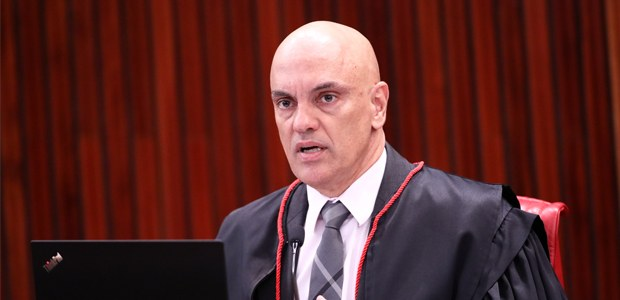Brazilian Banks Grapple With Fallout From U.S. Sanctions on Supreme Court Justice Moraes
- Flexi Group
- Aug 6, 2025
- 3 min read
Brazilian banks are moving quickly to determine the domestic implications of sweeping U.S. sanctions imposed on Supreme Court Justice Alexandre de Moraes, who is overseeing a criminal trial against a close ally of former U.S. President Donald Trump. Legal departments across Brazil’s financial sector are urgently analyzing how Washington’s move to financially isolate the judge could reverberate through the country’s financial system.

Justice Moraes is at the helm of the trial of former Brazilian President Jair Bolsonaro, the far-right leader accused of orchestrating a coup attempt to overturn his 2022 election defeat. While Bolsonaro has denied trying to stage a coup, he admitted to attending meetings aimed at reversing the electoral result. Trump, who has condemned the proceedings as a “witch hunt,” revoked Moraes’ U.S. visa and on Wednesday placed the justice under sanctions through the Global Magnitsky Act. The U.S. government accused Moraes of authorizing “arbitrary detentions” and suppressing freedom of expression.
The Global Magnitsky Act enables the U.S. to freeze assets under its jurisdiction and block American firms from conducting business with foreign nationals considered guilty of corruption or human rights violations. These sanctions coincided with a new executive order signed by Trump imposing increased tariffs on Brazilian goods, also referencing the case against Bolsonaro as justification.
Although Brazil’s Supreme Court stated that Moraes holds no assets within the United States, the sanctions could still bar him from using internationally issued payment cards linked to U.S. companies such as Visa and Mastercard. Given the expansive influence of the U.S. financial system, foreign banks often choose to curtail a broad range of transactions involving sanctioned individuals, in an effort to avoid triggering secondary sanctions. This has raised critical questions for Brazilian banks over how far they must go to ensure compliance with Washington’s orders.
Bradesco CEO Marcelo Noronha addressed the issue on Thursday, telling analysts that the bank had retained law firms to provide legal opinions on the scope of the sanctions. “We’re awaiting legal opinions,” Noronha said, signaling the institution’s cautious stance.
At another leading Brazilian bank, a senior source noted that their initial legal review suggests that local banking operations should remain unaffected. However, the source acknowledged that international and foreign exchange-related transactions might potentially violate U.S. regulations. “So far, the consensus is that the safest ground is limited to transactions in local currency,” the source said, requesting anonymity as the bank's internal assessment is confidential.
Brazil’s central bank has not yet issued any public guidance to the country's financial institutions regarding compliance with the U.S. measures.
Meanwhile, Eduardo Bolsonaro, a sitting lawmaker and son of the former president, voiced his support for the sanctions on social media. Eduardo, currently in the U.S. lobbying on behalf of his father and pushing for amnesty for those who stormed government buildings after Bolsonaro’s electoral defeat, said the cost of supporting Moraes “will be unbearable” and emphasized that U.S. authorities would be watching closely.
President Luiz Inacio Lula da Silva condemned the sanctions, describing them as an unacceptable intrusion into Brazil’s judicial independence. Vice President Geraldo Alckmin echoed the sentiment, saying, “The Magnitsky Act should not punish judges for doing their job.”
In a formal response issued Wednesday, Brazil’s Supreme Court declared that it “will not deviate from its role of upholding the constitution and the country’s laws.”
Later that evening, Moraes made a public appearance at a soccer match, where he was photographed smiling and waving to supporters. One widely circulated image captured the justice making a rude hand gesture, which quickly spread across social media and appeared in local press coverage.
By fLEXI tEAM





Comments